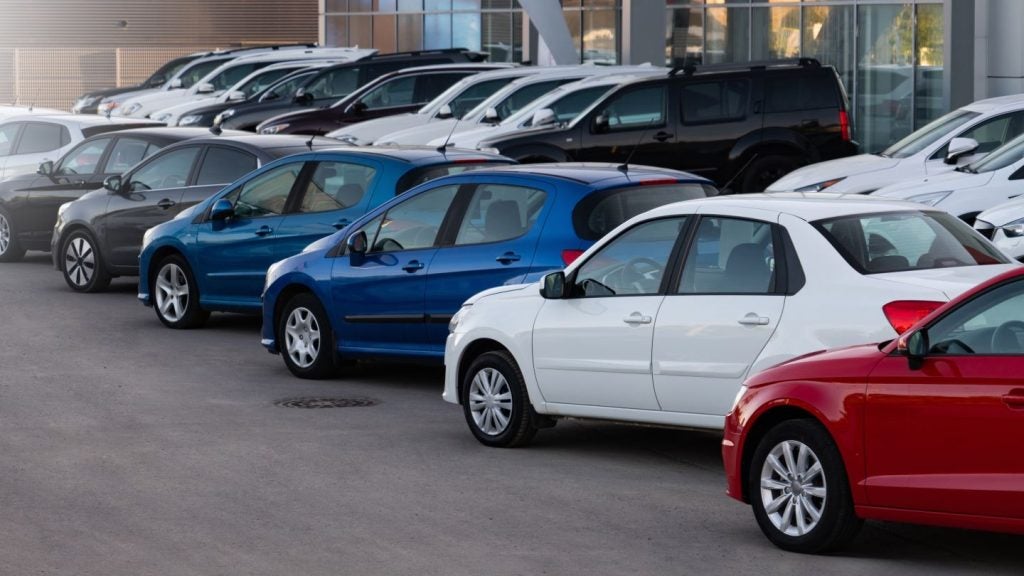
The year 2024 is expected to be recognised as the year of “peak petrol” concerning UK car power sources, according to insights shared with over 160 delegates at the annual seminar of the Vehicle Remarketing Association (VRA).
Louis Maxwell, senior insight manager at Auto Trader, told the audience at The Slate, Warwick University, that growth in sales of electric vehicles (EVs) meant that volumes of petrol cars would soon start to fall.
He said: “We’re living in the year of peak petrol. The number of petrol cars has stayed stable for the last decade or longer but the speed of electrification means that within five years, there will be two million fewer on our roads.
“We have already seen how diesel is starting to disappear from the new car market and, although the story of petrol will be slower and less dramatic, the rise of the EV means something similar will happen over time.
“Already, we are starting to see EVs become accessible to more buyers. In the used market, we’re seeing prices fall dramatically and now around one-third of total EV stock is priced under £30,000, making them more affordable and bringing the sale turnaround time among 3 to 5-year-old cars down to a very rapid 19 days. As the available stock ages and falls in price, EVs will become viable for more buyers.”
Each year, the VRA seminar provides a comprehensive briefing for remarketing professionals about trends affecting the sector in the year ahead.
How well do you really know your competitors?
Access the most comprehensive Company Profiles on the market, powered by GlobalData. Save hours of research. Gain competitive edge.

Thank you!
Your download email will arrive shortly
Not ready to buy yet? Download a free sample
We are confident about the unique quality of our Company Profiles. However, we want you to make the most beneficial decision for your business, so we offer a free sample that you can download by submitting the below form
By GlobalDataAndy Webb, head of sales, Brego, added that despite “peak petrol”, values of internal combustion engine cars had stayed consistent in recent years and looked set to remain stable at least into the medium term. There was even the possibility that they could rise as supply began to fall away.
He said: “We can see that values of petrol and diesel vehicles have stayed remarkably consistent in recent years. If the current ZEV Mandate production targets stay in place, we might move into a situation where there is a shortage of petrol and diesel vehicles, potentially pushing up values, but we appear to be some distance away from than happening.”
However, Dionne Hanlon, senior editor for commercial vehicles, cap hpi, reported that the van market continued to be resistant to electrification with “diesel remaining king” and there was little sign of that situation changing.
She said: “Van buyers know and trust diesel, and can see few obvious advantages in switching to electric. While there are some issues surrounding the suitability of electric vans for many applications, simple lack of curiosity and awareness among potential customers is also a problem. There is no real incentive for van users to electrify and, until that changes, the most in-demand vehicles in the market are likely to remain diesel vans.”
The VRA seminar also heard from experts on the UK economy at a macro level, including Graeme Chaplin, Bank of England Agent for the West Midlands. He said: “The good news is that the huge spike in consumer price inflation seen in recent years has fallen away. There is some slight upwards pressure on CPI inflation in the coming months, but it should settle back to around our 2.0% target over the coming year.
“The fact that interest rates are now on a downward path is encouraging. We see some evidence of rising interest among businesses in increased levels of investment. But uncertainty remains a feature of the global and UK economies, so while we think there will be growth in the next few years, it is likely to be relatively subdued.”
David Bailey, academic economist at Birmingham Business School, added that there were four key actions the government could take to support the UK motor industry through the process of electrification.
“We’d like to see more flexibility surrounding the ZEV Mandate, which we’ll hopefully see soon following this week’s announcement from Jonathan Reynolds; substantial investment in public charging infrastructure; incentives for retail buyers to adopt EVs; and a clear and effective industrial strategy. All of these, taken together, should help to speed electrification.”
Danny Minshall, regional retail director, Greenhous, spoke about the situation for motor retailers, looking at ways in which dealers could face down strong headwinds in the new and used car markets.
He said: “As a business, we are looking to learn to move quickly and be more adaptable. That means doing things like ensuring we are working with manufacturers who are genuinely supportive of our business, getting vehicles prepared and to market quickly, diversifying use of our dealerships and turning them into buyer destinations, using new communications options such as WhatsApp, becoming more efficient in terms of our backroom operations, looking at new retail options such as a town centre shop, and driving sales with the right business information.”
Other speakers at the VRA seminar included Stuart Pearson, chief operating officer at BCA; Melissa Seckington, corporate sales development manager, Wilson’s Auctions; Maarten Bekkers of Autochat; Jonathan Butler of Geldard’s; Mark Rose of Tracker; Jeremy Raggett of Autotek21; Elliott Perks of Jigcar; Rupert Pontin of Autograb; Nikolaus Mayerhofer of Aviloo; Richard Aucock of Motoring Research; Gilles Debuchy of Moba; and Olivia Mills, remarketing manager and gender chair for diversity and inclusion, Zenith.
Philip Nothard, chair at the VRA, said: “This was an excellent event that provided a superb briefing for the year ahead for our delegates. The motor industry is going through an extremely turbulent period but the information presented will help to ensure that attendees have the right information to survive and thrive.
“For this year, we spent some time working on new formats, with more on-stage interviews and fewer straightforward presentations, which was an approach that helped to drive interest in the room and create a higher level of engagement. The whole event was an excellent shop window for the VRA and, we expect, will help to drive future membership of our organisation.
“As in previous years, the seminar was not just open to VRA members but also free to attend for other motor industry professionals. The people making this possible were our sponsors, who we’d like to thank for making the event viable.”







